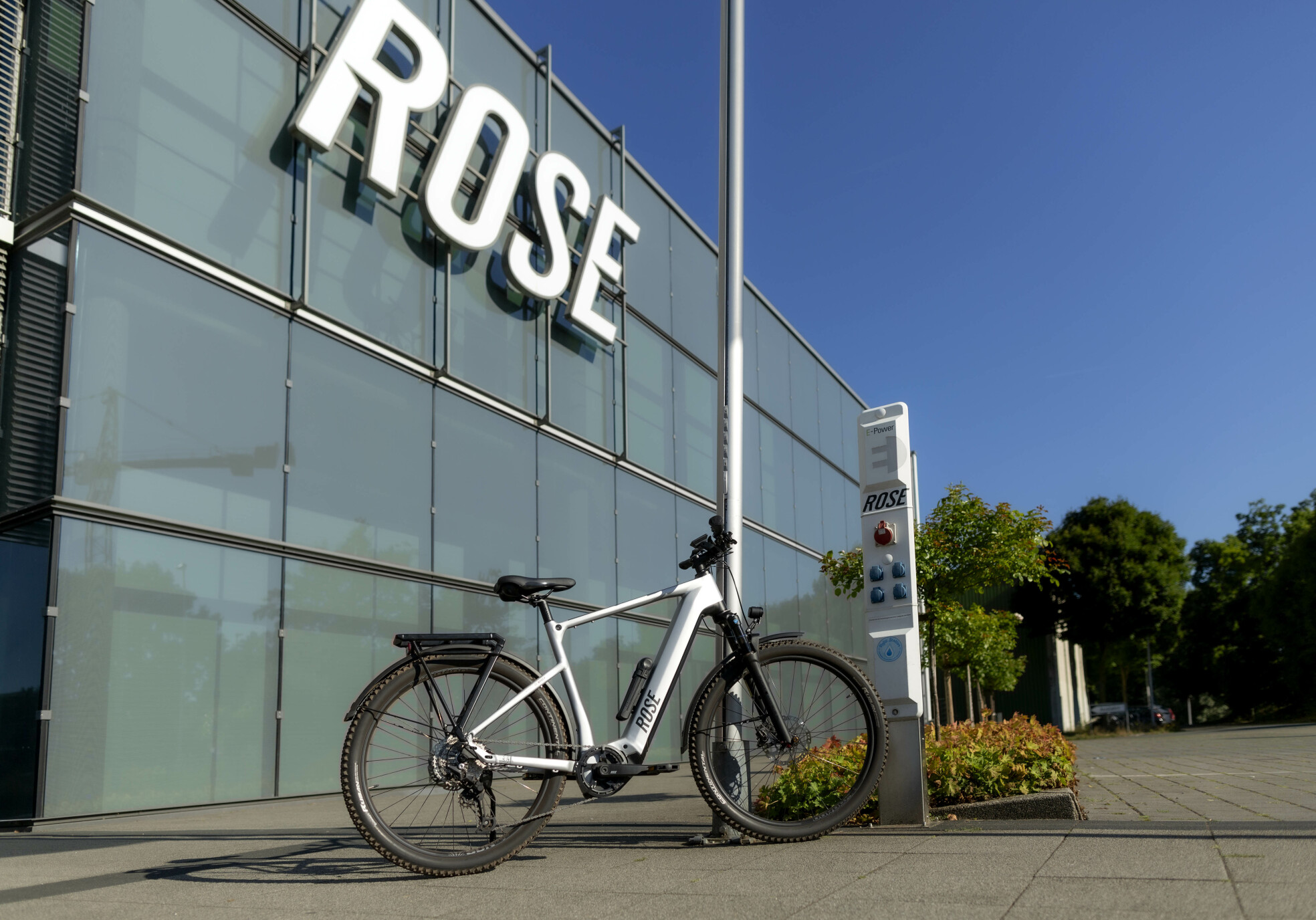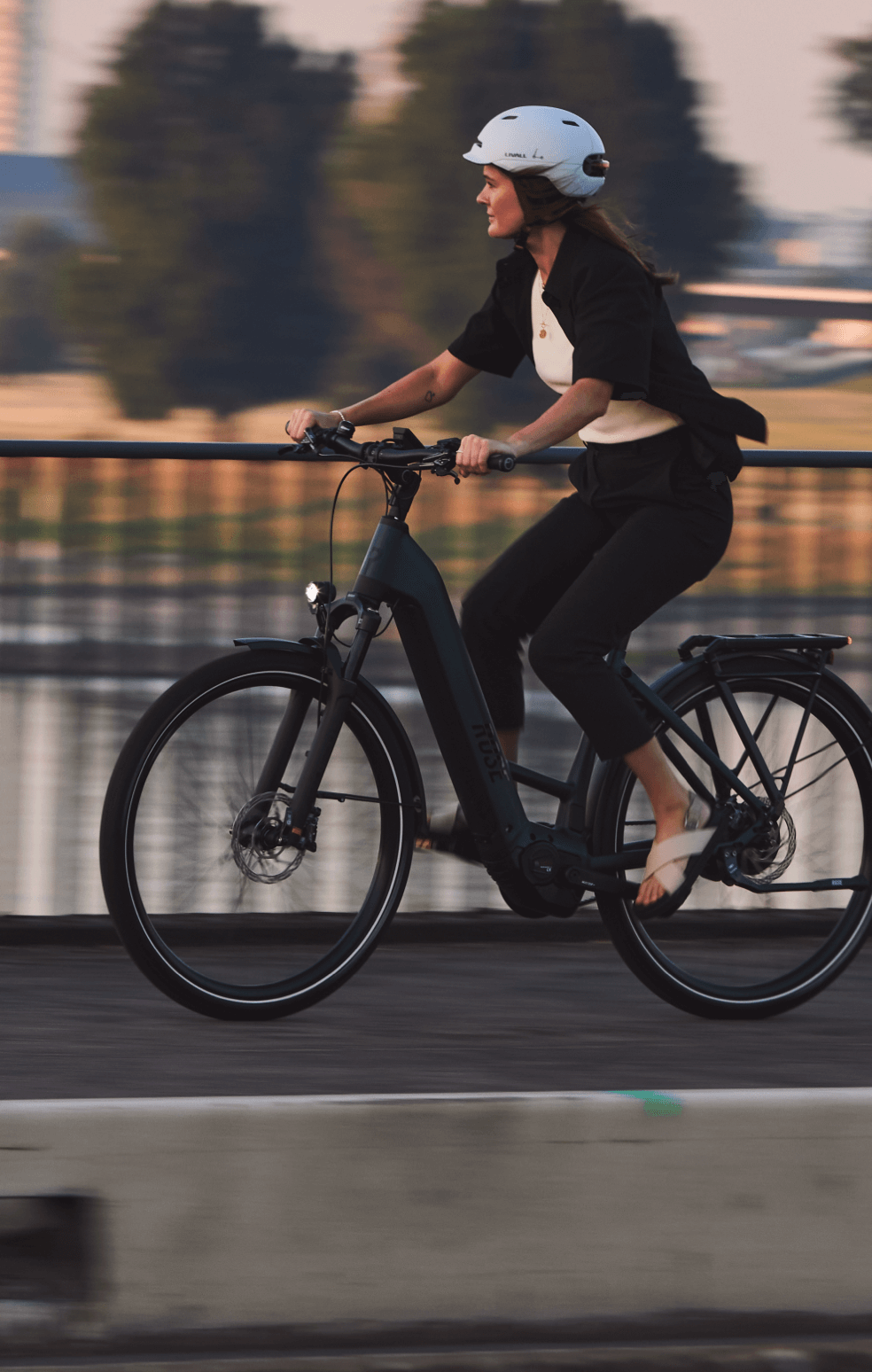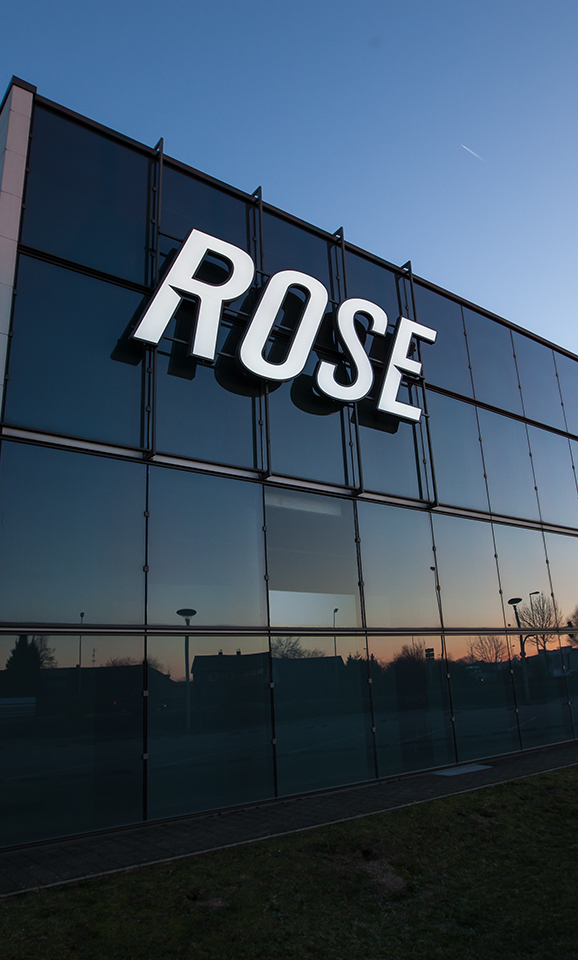Climate Protection at ROSE
We at ROSE are committed to the Paris climate goals. Through our commitment and especially our core product, we are helping to drive forward the mobility revolution and reduce emissions.
)
Taking Responsibility
With the signing of the Paris Climate Agreement, the international community agreed to limit global warming to well below two degrees, if possible to 1.5 degrees. This also means that companies have to become active and assume their responsibility.
In addition to further developing our products, we at ROSE are continuously working to reduce our CO2 emissions. Since 2018, we have had Climate Partner calculate our corporate carbon footprint (CCF) by measuring the CO2 emissions at the sites in Bocholt (administration, logistics, and Biketown). Climate Partner develops climate protection solutions for companies and supports the calculation, reduction and compensation of emissions. This provides better transparency about our climate footprint and helps us to develop appropriate measures. We believe that a holistic climate protection strategy is an important building block for working towards the 1.5 degree target as a company.
Our Emissions – Our Actions
Currently, approx. 90% of our total emissions come from staff travel, outbound logistics and packaging material. In 2021, Rose created 3,393 tonnes of CO2 equivalents. This corresponds to a CO2 footprint from 391 European citizens. One person in Europe causes an average of 8.7 t CO2.
Because we have been calculating our Corporate Carbon Footprint (CCF) since 2018, we already know where the biggest issues are. Various areas within the company have already made reductions in recent years, for example by saving printer paper and switching to digital solutions. We have reduced packaging waste as much as possible and plan to continue optimising our shipping packaging to avoid empty volumes. Various revegetation projects have been initiated at the Bocholt site and provide new spaces for nature and employees. In addition, 100% of our electricity at this site is “green” and obtained from our own photovoltaic system and hydropower.
The largest CO₂ emission sources
)
Employee Mobility
Hoewel een groot deel van onze werknemers al de fiets gebruikt voor woon-werkverkeer, willen wij dit graag verder uitbreiden. Daartoe wordt korting gegevens bij aankoop van een ROSE fiets is er een medewerker voor de mobiliteit in dienst genomen.
Verder is een enquête onder de werknemers gehouden om na te gaan welke vervoermiddelen zij gebruiken om naar het werk te reizen en waarom zij niet fietsen.
Verdere maatregelen zijn gepland voor de toekomst. Een daarvan is de dialoog met de belanghebbenden. Door samenwerking met steden, politie, scholen en bedrijven streven wij ernaar het mobiliteitssysteem in Duitsland duurzamer te maken. Het doel is snel, veilig en milieuvriendelijk vervoer per fiets voor iedereen.
Anderzijds willen wij door middel van bedrijfsmobiliteitsmanagement mensen motiveren te fietsen, zodat de uitstoot bij de mobiliteit van onze werknemers steeds verder kan worden teruggedrongen. Dit gebeurt door de aanleg van betere fietsenstallingen, de integratie van e-oplaadstations en een goede communicatie met de werknemers.
Employee Mobility at ROSE Bikes
)
Outbound Logistics
ROSE sends out 1.2 million parcels a year. Of these, 16% are sent back as returns. Returns create a high cost in terms of employee efforts and new packaging resources. With the Retourensiegel (returns seal), we demonstrate our responsible approach to returns. Through targeted measures and education, we want to motivate customers to shop more consciously and return less. Furthermore, we want to work on combining more packages.
)
)
)